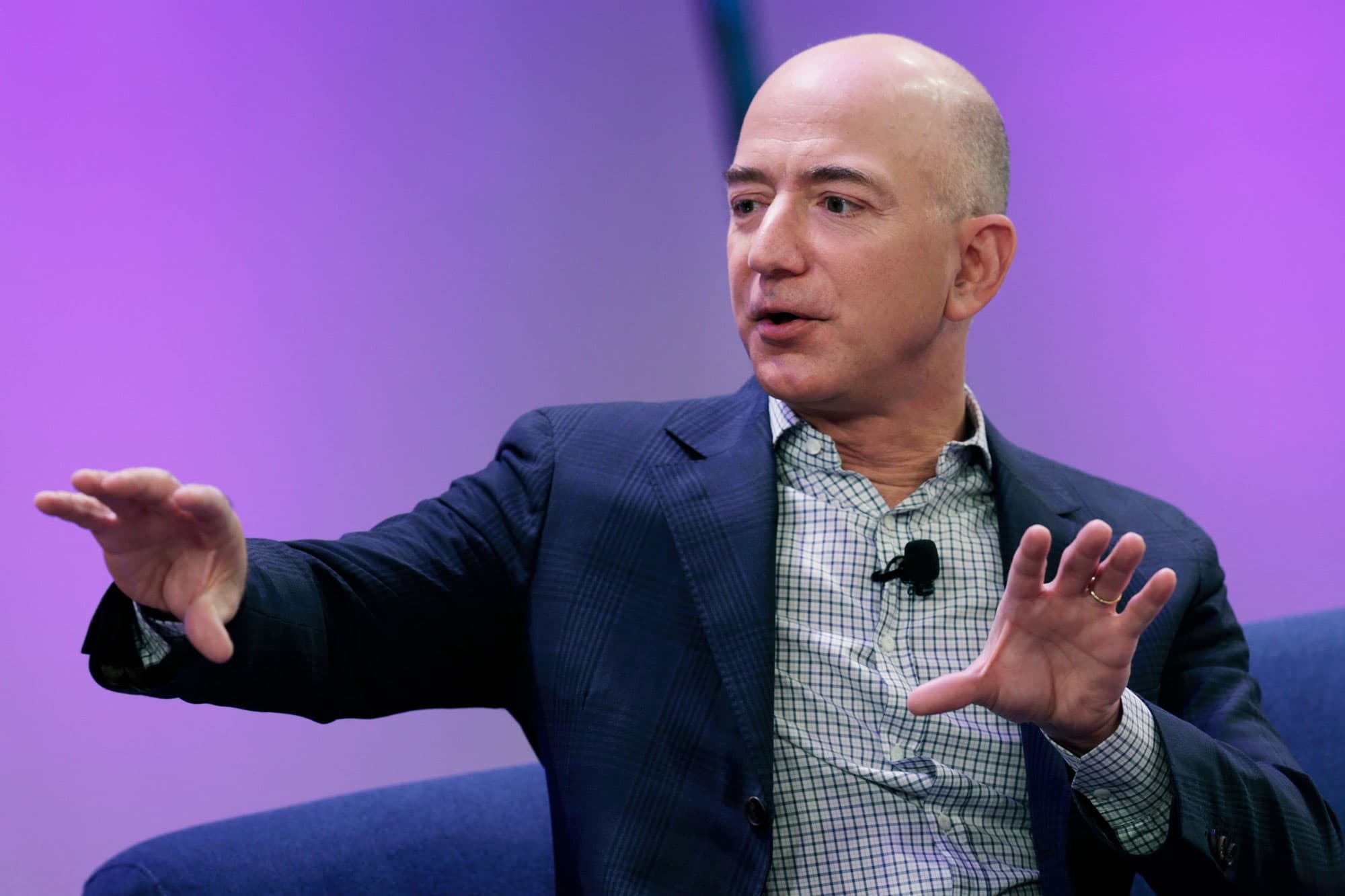With Amazon’s massive success today, it’s hard to imagine that Jeff Bezos started it in 1994 as an online bookseller — in a small garage where employees’ desks were made out of doors from Home Depot.
Now, there’s almost nothing you can’t buy on Amazon, which begs the question: How did it become “the everything store”?
‘We can sell anything’
In 1997, after Amazon made enormous strides into selling CDs and DVDs, Bezos wanted to see how else he could expand his online storefront.
“I emailed 1,000 randomly selected customers and asked them, ‘Besides the things we sell today, what would you like to see us sell?'” Bezos said in a 2018 interview at the Economic Club of Washington. The responses were all pretty lengthy, “but the way they answered the question was whatever they were looking for at that moment.”
The self-made billionaire recalled one person writing back, “windshield wiper blades, because I really need windshield wiper blades.”
“That’s when I thought to myself, We can sell anything this way.” Bezos said at the talk. “So then we launched electronics and toys and many other categories over time.”
Give the people what they want
By the early 2000s, Amazon moved far beyond books, videos and music — offering apparel, electronics, toys, kitchenware and even magazine subscriptions.
In his 1999 letter to shareholders, Bezos shared his vision to use Amazon’s platform to build “Earth’s most customer-centric company, a place where customers can come to find and discover anything and everything they might want to buy online.”
“We’ll listen to customers, invent on their behalf, and personalize the store for each of them, all while working hard to continue to earn their trust,” he wrote. “Each new product and service we offer makes us more relevant to a wider group of customers and can increase the frequency with which they visit our store.”
What we can all learn from Bezos
Bezos is currently worth an estimated $185 billion, according to Forbes. While very few people will reach similar success, we can all learn from his way of thinking.
1. The simplest ideas are worth trying.
One of the biggest misconceptions about innovation is that ideas worth testing must always complex or sound “crazy” to the average person.
But, as Bezos has shown, you can take a simple idea (i.e., a store that sells more than just books) and turn it into something bigger.
2. Accept that you’re going to fail.
“I’ve made billions of dollars of failures,” Bezos said at the IGNITION conference back in 2014. “One of my jobs is to encourage people to be bold. It’s incredibly hard. Experiments are, by their very nature, prone to failure.”
However, those who don’t embrace failure, Bezos said, will “eventually get in a desperate position where the only thing they can do is a Hail Mary bet at the very end.”
3. Talk to people outside of your circle.
While we’re all very much the same, we all have different needs. And listening to those needs (whether you’re an entrepreneur or a team member trying to think up ideas for your company) can help you make smarter and quicker decisions.
To figure out how Amazon should expand, Bezos didn’t look to himself or to his employees. He asked customers directly, which helped him build a business that appealed to virtually everyone.
4. Go slow.
No one gets rich overnight. It took Amazon 26 years to get to where it is today — and it continues to defy gravity through constant improvement, experimentation, and innovation.
“Gradatim Ferociter” is the motto for Blue Origin, Bezos’ space company. The Latin phrase “means step-by-step ferociously,” Bezos explained in an interview with Four Peaks TV in 2013.
“Basically, you can’t skip steps,” he said. “You have to put one foot in front of the other. Things take time. There are no shortcuts.”
Tom Popomaronis is a leadership expert and vice president of innovation at Massive Alliance. His work has been featured in Forbes, Fast Company, Inc., and The Washington Post. In 2014, Tom was named one of the “40 Under 40” by the Baltimore Business Journal. Follow him on LinkedIn.
Don’t miss:
